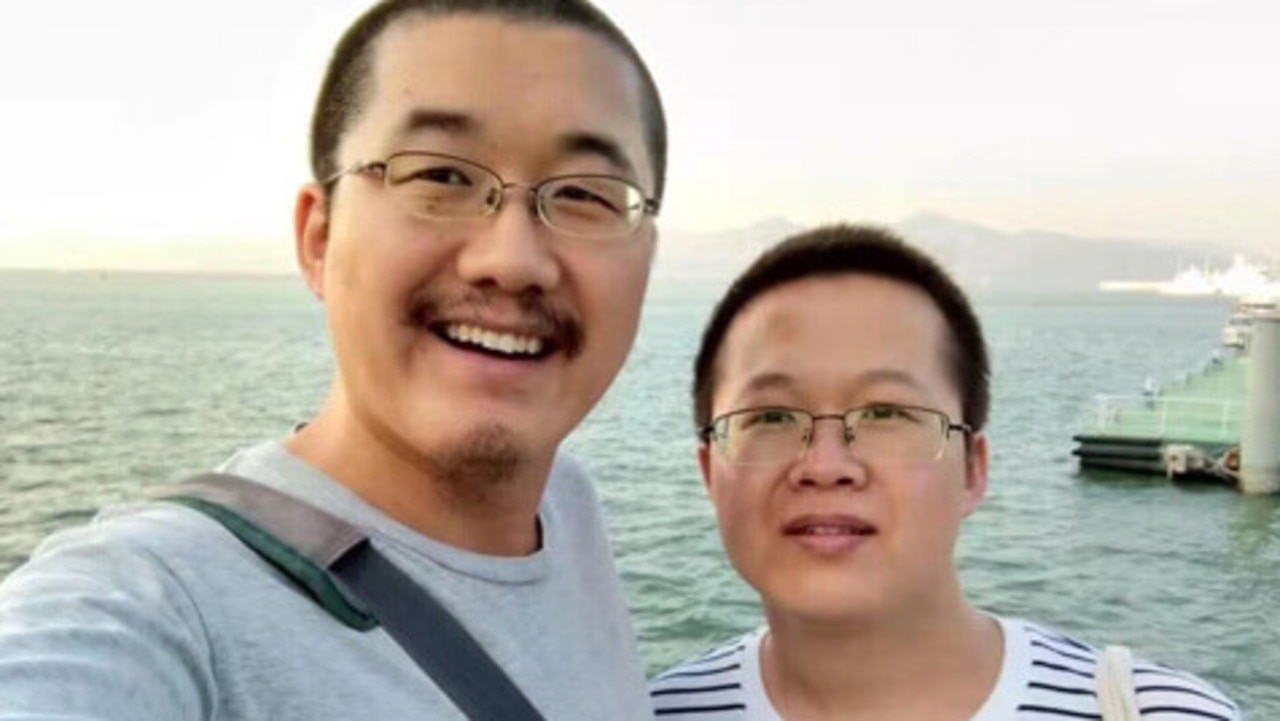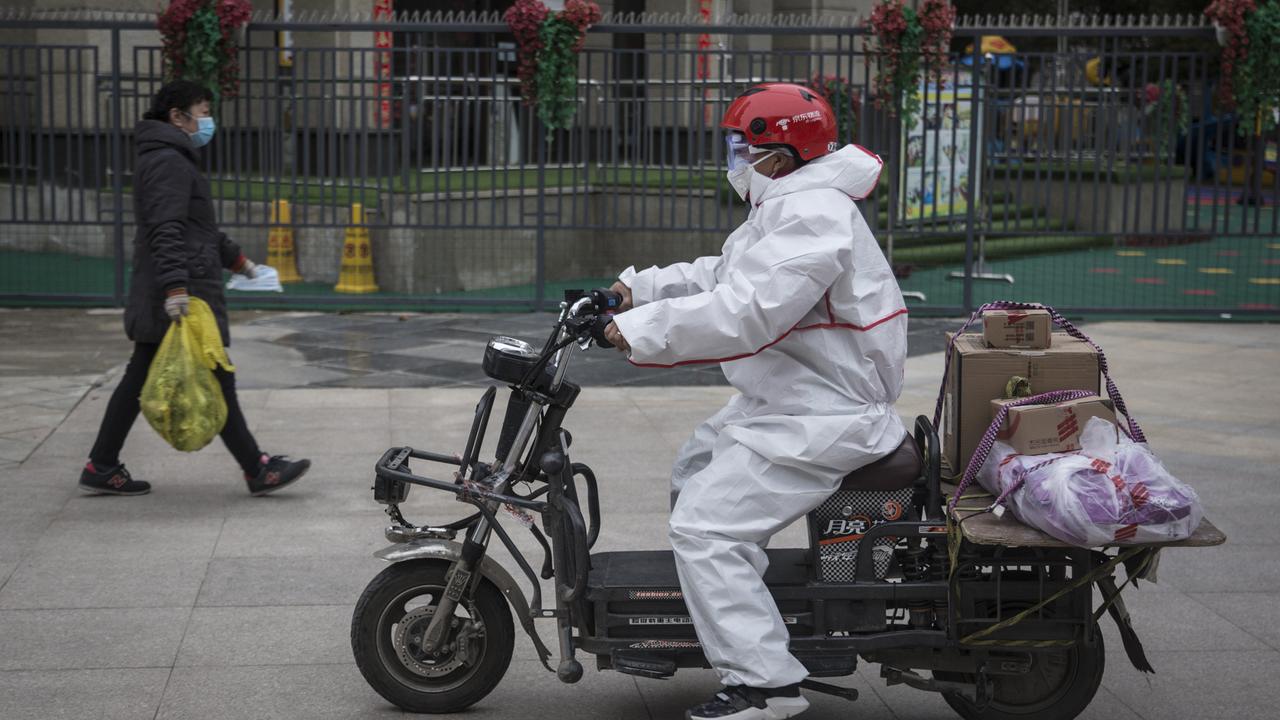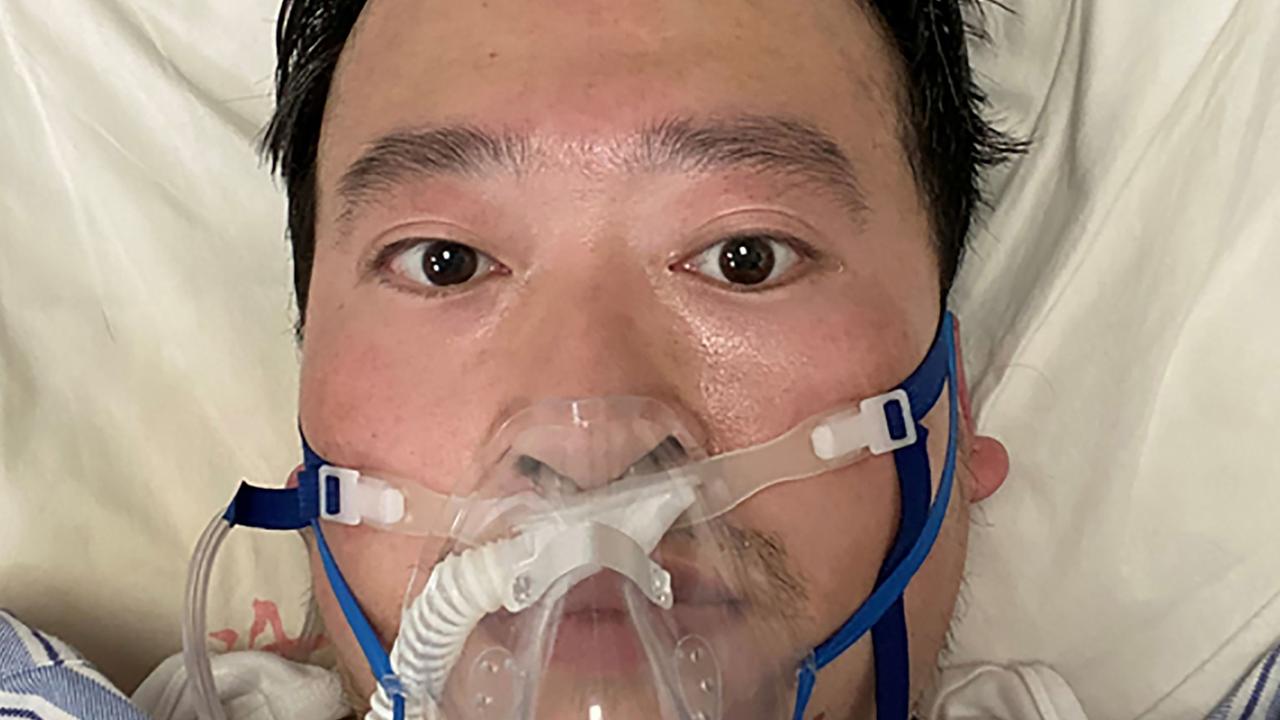Coronavirus origin Wuhan: Grim fate of China’s COVID-19 whistleblowers
The people who defied China to let the world know about a virus that has killed 2.5 million people have paid a cruel price for their bravery.
The devastating impact of China’s crackdown on anybody who dared speak the truth about what was happening at the beginning of the coronavirus pandemic has been laid bare by heartbroken family members – who in some cases haven’t seen their loved ones since they were taken away by authorities many months ago.
One of those who lost a loved one is Chen Kun – who has been living in self-imposed exile in Paris because he is terrified of what would happen to him if he returned home.
His brother Chen Mei had worked to expose what was happening as the virus began to spread rapidly through China.
In China, information the government doesn’t want its citizens to see is blocked by a “great firewall”, but Mr Chen – along with the help of a group of whistleblowers – found a way around it.
It was called Terminus 2049, a crowdsourced repository for sensitive articles that was founded in 2018, and it archived censored posts on Chinese social media platforms WeChat and Weibo.
Mr Chen’s family and friends warned him he might land himself in trouble with the Chinese government, even though what he was doing was relatively conservative compared to other activists.
However, late in 2019, when a mysterious new virus began circulating in the city of Wuhan, everything changed.

As the virus began to take hold, the Chinese government moved to crack down on “rumours” being spread by doctors and whistleblowers about the virus – detailing deaths and the alarming rate of transmission.
Hearing reports of how the virus was spreading, Mr Chen’s brother Chen Kun fled the country to Indonesia in a bid to avoid the pandemic.
It was while he was living there, several months later in April 2020, that he got a call saying his brother has been detained – along with two others involved in the Terminus 2049 project.
Mr Chen had been charged with “picking quarrels and provoking trouble” – and his family have not seen or heard from him ever since.
His brother, who is now exiled in Paris, told CNN he has serious concerns for the rest of his family in China.
“I’m worried, but I don’t have any choice. I just have one option which is to speak out,” Chen Kun said.
He is deeply concerned about the Chinese government’s crackdown – saying it has “whitewashed” what happened at the beginning of the pandemic, meaning the world cannot learn from mistakes that were made.
The Chinese government has been heavily-criticised for the way it suppressed information in the early days of the outbreak in December 2019.
According to Caixin, the known coronavirus case was on December 18, when a 65-year-old deliveryman linked to the Huanan Seafood Market in Wuhan who was admitted to Wuhan Central Hospital after developing a fever three days earlier.
Nine days later, staff at the hospital became concerned when a 41-year-old man with similar symptoms was taken in for treatment, as he had never been to Huanan Seafood Market.
Three days later doctor Ai Fen from the hospital circulated a patient’s test result that reads “SARS coronavirus” to her colleagues.

The message was shared online before all evidence of it was soon wiped from the internet.
The following day Dr Ai was reprimanded by his hospital and the local health commission for spreading reports of the virus – as authorities began to crack down on “rumormongers”. She is understood to still be working at the hospital.
The Chinese government didn’t report the first death until January 11. However, the following day, it said there was no evidence of human-to-human transmission – a claim repeated shortly after by the World Health Organisation.
By that point, the virus had begun to spread around the nation and later to the rest of the world.
The Chinese government’s propaganda machine has been in full-flow ever since – stating that its authoritarian response to the virus has worked and shows China’s strength.
Officials have scrubbed reports about what happened in Wuhan and created their own alternative timelines that painted China in a more favourable light.
They have promoted baseless arguments that the virus could have started elsewhere, including the theory US army personnel could have brought the virus to China when they came to Wuhan for the Military World Games in October 2019.
Meanwhile, those who tried to warn the world of what was to come are languishing in prison – or dying from the disease they were trying to expose.
Li Wenliang, a 34-year-old Wuhan ophthalmologist at a local hospital, became a poignant symbol of the early days of the outbreak, before it was officially recognised. When he tried to sound the alarm, he was reprimanded by Chinese officials for “spreading rumours”.
The doctor’s death, reportedly from coronavirus, on February 7, 2020, caused both enormous public mourning and a rare outcry of anger online.

A 37-year-old citizen journalist Zhang Zhan is paying the price for her on-the-ground reporting from the central Chinese city of Wuhan in the early days of the disease.
Ms Zhang was sentenced to four years imprisonment in the last week of December for “picking quarrels and provoking trouble” – accused of “fabricating malicious and false information” after she travelled to Wuhan and reported on what she found there.
For six months, Ms Zhang had refused to plead guilty, beginning a hunger strike soon after her arrest, which continued right up to her brief trial.
ABS-CBN reports she attended court in a wheelchair and in a December visit at Shanghai Pudong detention centre, she told her lawyer: “[I am] mentally and physically exhausted. Every day has been a torture.”
By that stage, Ms Zhang’s hands were restrained to stop her removing a feeding tube in her nose, while her health continued to deteriorate.
Meanwhile, the coronavirus has killed at least 2,527,287 people since it emerged in China in December 2019.




